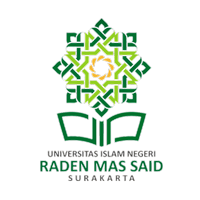LANGUAGE, CULTURAL MEMORY, AND CULTURAL IDENTITY: A CROSS-CULTURAL STUDY OF ASIAN-AMERICAN NARRATIVES
Contributors
HIDAYATUL NURJANAH, M.A.
DR. NUR ASIYAH, M.A.
Keywords
Proceeding
Track
General Track
License
Copyright (c) 2025 International Conference on Cultures & Languages

This work is licensed under a Creative Commons Attribution-NonCommercial-NoDerivatives 4.0 International License.
Abstract
As the melting pot, America gains numerous advantages in term of culture such as rich in cultural diversity, exchange in language, values and tradition, rise in technology and innovation, and numerous additional advantages. However, it also has many disadvantages such as discrimination and racism, domination in majority culture, social inequality, identity confusion, and many more. This research aims at scrutinizing the interconnection between language, cultural memory, and cultural identity in selected Asian-American narratives employing Jan Asmann’s Cultural Memory theory. Asmann formulated his cultural memory as medium for society where they can capture, preserve, and recall using language. In diasporic society where they have a collective identity rooted in their homeland, language plays important role in preserving tradition, history, and myth. It also becomes a tool of negotiation when identities constantly being reconstructed. This is qualitative research using interpretive approach focusing on Asian-American films, The Farewell (2019) and Minari (2020). These films provide language both in bilingual and multilingual in their conversation, storytelling which engaging generations mindsets, and symbolism in culture from their homeland. There are three steps in collecting the data, first, the language analysis to signify the cultural reference, second, the cultural memory to analyze the complexity of the problems, third, the cultural identity stage to answer the identity negotiation in their cross-cultural environment. The findings indicate that there are methods to preserve culture and tradition from their homeland passing from generation to generation. Language serves as both repository of memory, culture, and tradition, it performs as identity formation as well. By reflecting and demonstrating how Asian-American narratives serving as cultural memory and identity formation, this research contributes to cross-cultural language, shaping the evolution on cultural diversities and identities in Asian-American communities.

